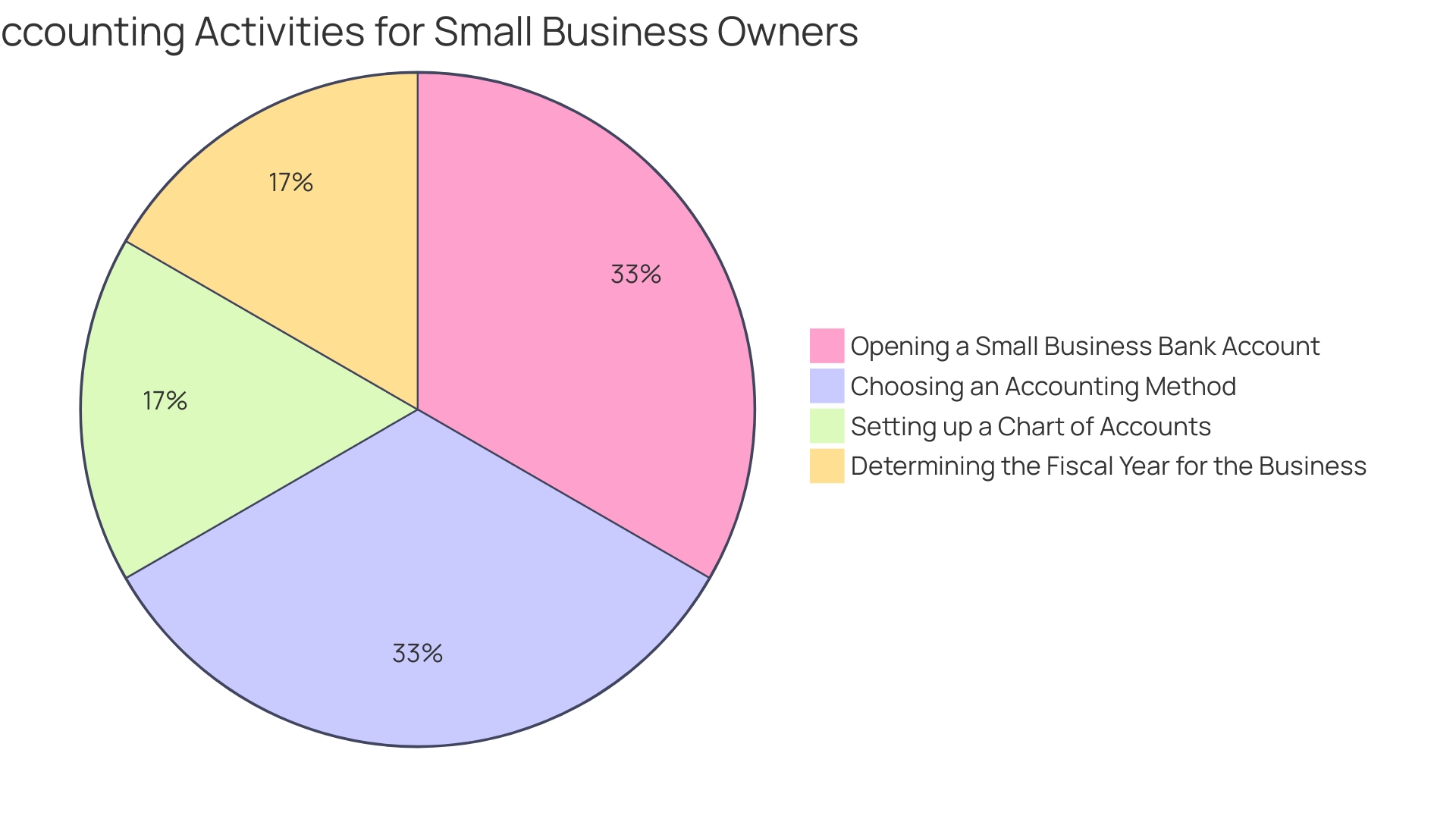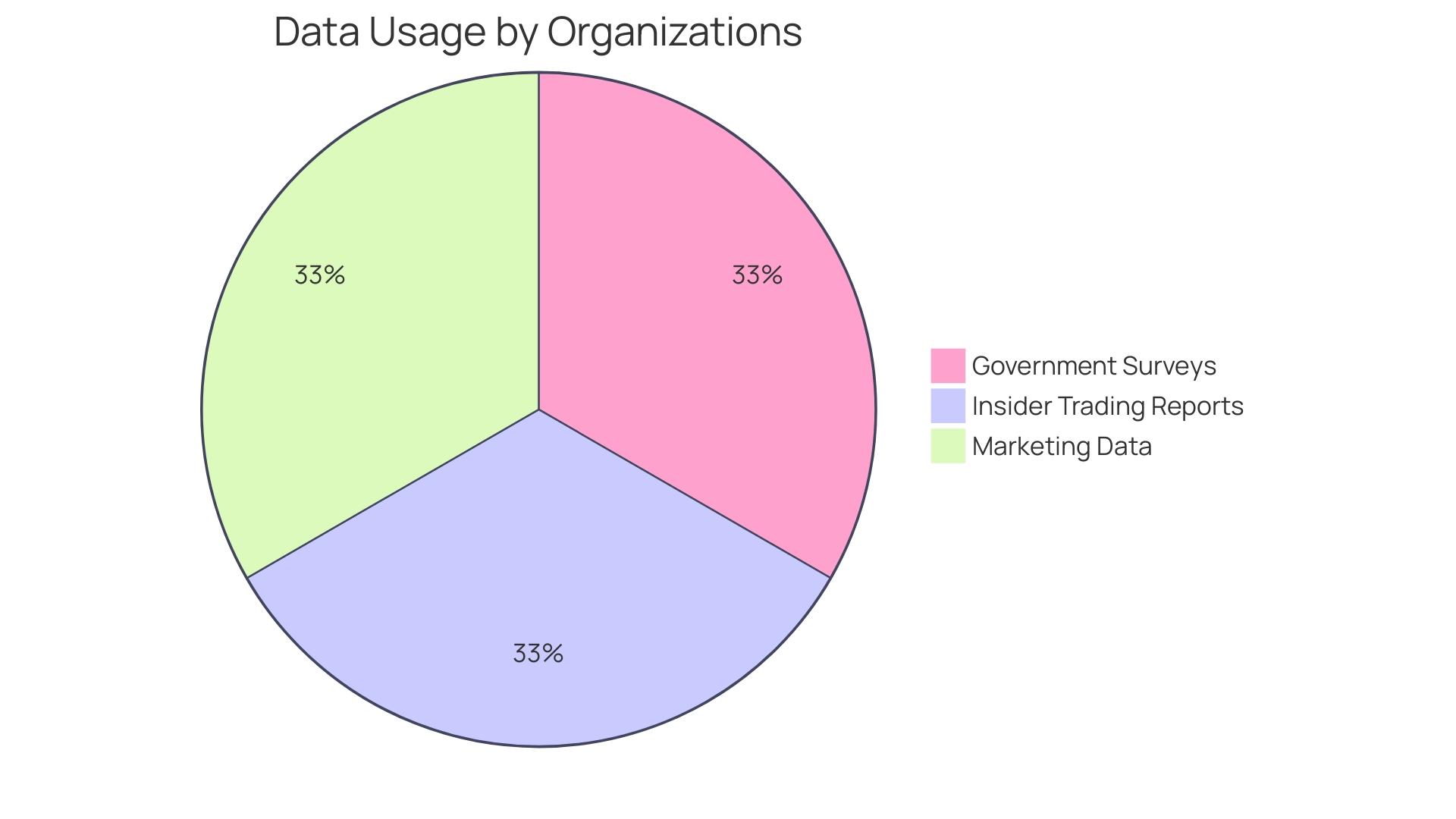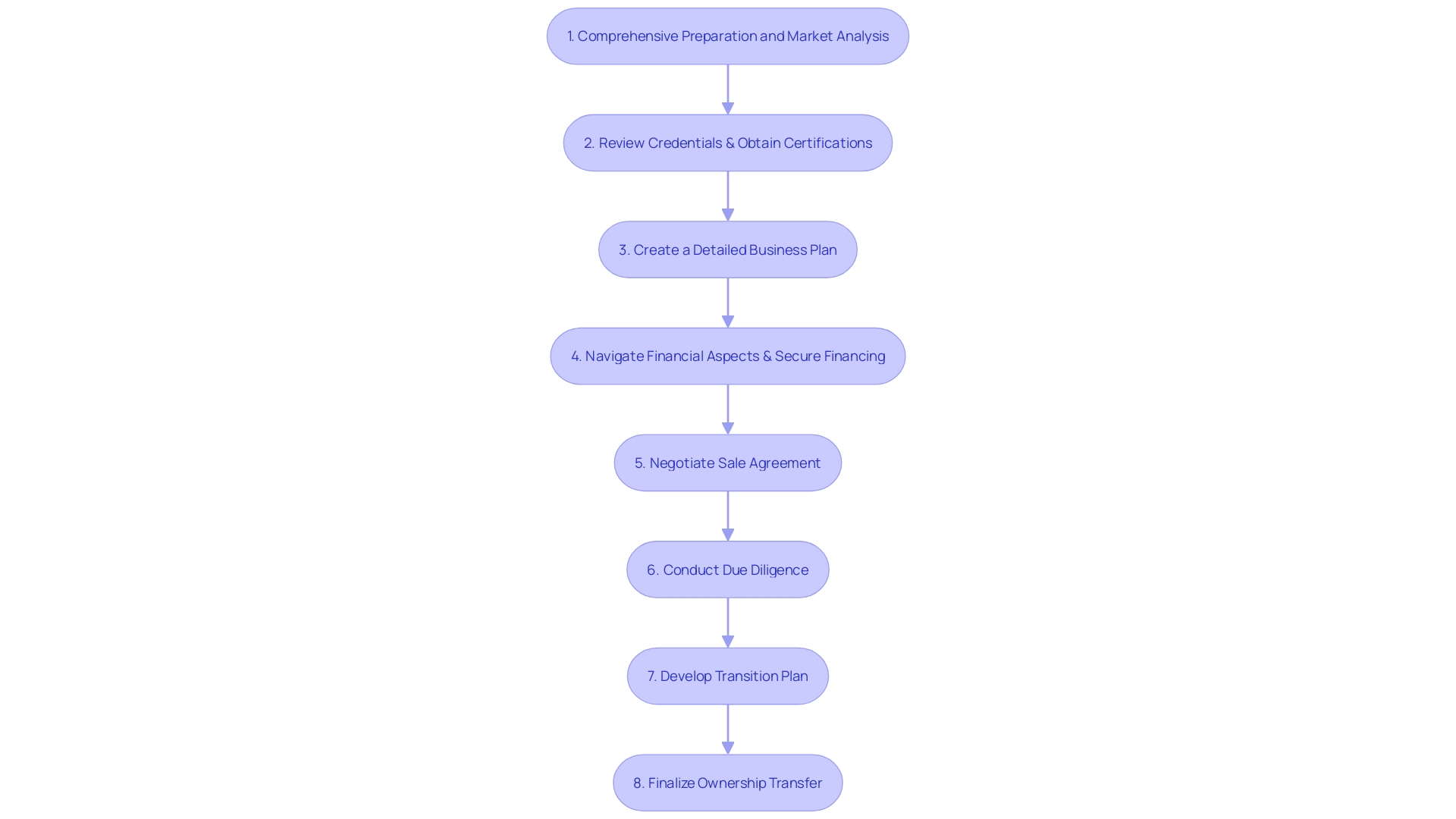Introduction
Are you considering investing in an accounting or bookkeeping business? This profitable venture offers a consistent clientele base and potential for growth. However, success in this industry requires careful preparation and thorough analysis.
In this article, we will explore the key factors to consider when buying an accounting business, the valuation of accounting and bookkeeping businesses, finding the right accounting business for sale, the steps to purchase an accounting or bookkeeping business, common platforms for buying and selling accounting businesses, and tips for a smooth transition after purchase. By understanding these aspects, you can make an informed decision and pave the way for a prosperous future in the accounting industry. So, let's dive in and explore the exciting opportunities that await in this thriving sector.
Why Invest in an Accounting or Bookkeeping Business?
Starting a venture in the field of financial management or record-keeping proves to be a lucrative opportunity, owing to the indispensable significance of monetary solutions. Businesses, regardless of size, heavily depend on bookkeeping and record-keeping, assuring a consistent clientele base. This sector is characterized by its steady demand and the recurrent nature of its revenue streams. Customers frequently request monthly or quarterly offerings, providing entrepreneurs with a reliable source of revenue.
Furthermore, the field of financial management and record-keeping is ripe with potential for expansion. As enterprises grow, they inevitably require more complex financial services, directly correlating to opportunities for your business's growth. For those with an accounting or bookkeeping background, this field enables the application and expansion of your skill set and knowledge.
However, success in this industry does not come without its prerequisites. A thorough examination of the market and careful planning are the foundation of a successful bookkeeping enterprise. Such an approach involves a thorough exploration of the demand for bookkeeping, identifying potential clients, and examining the competitive landscape. For individuals new to bookkeeping or those looking to sharpen their skills, acquiring certifications or attending relevant courses can be immensely beneficial.
Understanding the legal landscape of setting up a company is equally important, covering registration, licensing, and tax understanding. These endeavors should result in a strong plan that outlines your model, service offerings, pricing strategies, and financial forecasts. Moreover, creating a solid operational framework is crucial, shaping the structure, legal liabilities, and tax implications of your enterprise.
The incorporation of technology cannot be underestimated, with software for financial management and secure internet connections forming the technological foundation of contemporary bookkeeping operations. Essentially, the strategy for managing and recording finances in enterprises is not only focused on preserving financial records but also on examining and deciphering financial information to arrive at well-informed organizational choices.
Key Factors to Consider When Buying an Accounting Business
Acquiring an accounting enterprise can be a strategic step for entrepreneurs aiming to establish themselves in the financial services sector. A well-chosen acquisition can provide a solid client base, a reputable brand, steady cash flow, and a team of skilled professionals. Nevertheless, it's crucial to examine the specifics before making a commitment.
Analyze the client portfolio to comprehend the stability and diversity of the company's revenue streams. A loyal clientele with minimal concentration risk ensures a dependable foundation for future operations. Examine the firm's reputation in the sector; a company recognized for its expertise and customer service is extremely valuable.
Financial thoroughness is essential: evaluate the profitability and cash flow trends to measure the economic well-being of the enterprise. The knowledge and qualifications of the current staff are equally important, as they are the foundation of delivery. Lastly, contemporary technology and systems are essential for efficiency and scalability.
Informed by insights from industry leaders and leveraging thorough planning, you can align your acquisition with market trends and client needs. This strategic approach can maximize the value of your investment, position you for growth, and secure your role in the competitive landscape of financial services.
Valuation of Accounting and Bookkeeping Businesses
When evaluating an accounting or bookkeeping enterprise for sale, several crucial elements come into play. The financial health of the company is crucial; analyzing annual revenues, profit margins, and growth trajectories provides insight into its current and future performance. Having a strong client roster, especially those with longstanding relationships, improves the value of the company, offering a dependable flow of future revenue.
In addition to these factors, the presence of proprietary software or other intellectual property can distinguish the business and add to its worth. Moreover, the wider market for financial and record-keeping services and prevailing industry patterns must be considered. For instance, the Xero 2023 State of the Industry Report highlights a significant uptick in revenue and profits for practices that leverage cloud-based software, with 75% of such users experiencing higher profit margins compared to 54% of their non-cloud counterparts.
Valuation is also influenced by a firm's adaptability to technological advancements. The integration of cloud technology not only improves profit margins but also enhances client services and staff satisfaction. Furthermore, software marketplaces and developer portals are becoming increasingly important, as they enable firms to operate at peak efficiency with custom extensions tailored to their needs.
Ultimately, a professional valuation incorporates all these elements to ascertain a fair market price. As noted by industry experts, valuation is a delicate balance between narrative and numbers, and while pricing may dominate for younger companies due to less historical data and higher future uncertainties, a well-executed valuation serves as a critical bridge between the two.

Finding the Right Accounting Business for Sale
Starting the process of acquiring an accountancy enterprise demands a sharp perception for worth and comprehension of the market landscape. Utilizing the biggest online marketplace for enterprises, BizBuySell, could be your initial move. This platform offers a diverse range of financial firms that serve various budgets and preferences, guaranteeing you have access to a broad range of opportunities.
Furthermore, experts such as Abhijeet Kaldate, from Astra WordPress Theme, emphasize the significance of a company's future direction in every negotiation for a sale. A thorough valuation of the prospective enterprise is crucial, and engaging with a business appraiser will equip you with an accurate estimation of the firm's worth, considering the financials, customer base, and market trends. This step is fundamental in avoiding the pitfalls of under or over-valuation that could either diminish your investment's potential or deter sellers.
While exploring this endeavor, remember the importance of the professional services sector, which encompasses management consulting—a domain that, as per IBISWorld, generated $365.8 billion in revenue in 2022. This indicates a robust market with promising growth.
Using a broker specialized in accounting firms can greatly simplify your search, connecting you with tailored opportunities that align with your aspirations and financial goals. They offer guidance throughout the purchasing process, leveraging their expertise to your advantage.
Participating in associations and attending relevant events offers an opportunity to network with peers, potentially leading to insider knowledge on available sales. This proactive approach can uncover hidden gems in the market, giving you a competitive edge.
Remember, the offer might be alluring, but as Stephanie Wells from Formidable Forms advises, it is the informed assessment of the company's true value that will ultimately determine the soundness of your decision. By carefully estimating the value, you will position yourself to make a well-informed, strategic investment that could pave the way for a prosperous future in the field of finance.

Steps to Purchase an Accounting or Bookkeeping Business
When you decide to enter the realm of owning an accounting or bookkeeping enterprise, it's much more than just making an offer and signing papers. The adventure starts with a thorough exploration of the industry, where you evaluate the need for financial offerings and explore the competitive environment. This preparatory work includes a rigorous review of your own credentials, perhaps even beefing them up with additional certifications or training to ensure you're up to snuff. The main focus here is to create a detailed plan that outlines your vision in terms of the services you'll provide, your pricing, and the financial path you envision.
Next, you'll need to navigate the financial side of things, which includes exploring different avenues for funding the purchase, be it from personal savings, securing a loan, or finding partners to share the investment. Once you have your financing in place, it's time to talk turkey with the seller. Hammering out the details of the sale agreement is critical, covering everything from the asking price to payment schedules and any special conditions.
But it's not just about agreeing on a price; you also want to make sure you're not buying a lemon. That's where due diligence comes in, poring over the books and operations to confirm you're making a wise investment. Legal and financial experts can be worth their weight in gold here, helping to review every clause and comma in the agreement.
Don't forget, you're not just purchasing a venture; you're stepping into an ongoing narrative. You'll want to ensure that the narrative continues smoothly with a comprehensive transition plan that keeps clients happy and the company humming along without missing a beat.
Finally, when all the i's are dotted and the t's are crossed, you'll seal the deal with a flourish of signatures, officially transferring ownership and beginning a new chapter as the captain of your own financial business vessel.
Remember, starting a bookkeeping venture isn't a sprint; it's a marathon that requires careful planning, a clear understanding of the industry, and a solid operational framework. With professional services, including consultancy, making up a significant and expanding portion of the economy, tapping into this sector can be a wise decision. But it all starts with laying a strong foundation and strategically setting up your shop for success.

Common Platforms for Buying and Selling Accounting Businesses
Finding the perfect company to acquire can be an exciting journey. To start this journey, one could start by browsing through online marketplaces dedicated to buying and selling businesses, such as BizBuySell, BizQuest, and Businesses for Sale, which offer a wide range of listings for individuals interested in acquiring or selling their companies, including those in the field of finance.
Besides these overall marketplaces, there are websites specifically dedicated to the field of finance, where professionals can discover opportunities customized to their knowledge. For customized support, a broker who specializes in financial firms can provide not just unique listings but also professional guidance throughout the complexities of the acquisition procedure.
Remember that your professional network can be a goldmine. Seeking referrals from colleagues, industry associations, and other connections can lead to valuable leads that might not be publicly listed.
When contemplating the procurement of a well-established accounting company, it is crucial to evaluate the initial investment against the ongoing expenses required to foster and grow the enterprise. It's a strategic move that requires a careful evaluation of the company's niche, unique selling proposition, and a solid digital marketing strategy, particularly in a competitive online marketplace.
As Frank Williamson, CEO of Oaklyn Consulting, suggests, having a profitable enterprise doesn't necessarily equate to a straightforward sale. The distinctiveness of your enterprise, its organizational structure, and the current economic climate all play a role in attracting potential buyers. A customized approach to selling may be necessary to navigate a market with limited demand.
Moreover, the insight of Abhijeet Kaldate from Astra WordPress Theme resonates here; comprehending the trajectory of your company for the next decade is crucial when contemplating a transaction. The attraction of an instant profitable offer should be weighed against the long-term value of your enterprise.
In the world of online transactions, platforms like Fiverr demonstrate the power of a marketplace that connects buyers and sellers, where sellers retain a significant portion of the transaction value. This marketplace dynamic is a vital consideration for any individual who owns an accounting enterprise and is looking to sell, as highlighted by the insights from the United States Securities and Exchange Commission on the competitive nature of financial platforms.
To sum up, the journey to obtaining a financial enterprise is lined with different alternatives, each demanding careful consideration and strategic preparation. By exploring available platforms, tapping into your network, and considering the company's future potential, you can make a well-informed decision that aligns with your entrepreneurial goals.
Tips for a Smooth Transition After Purchase
Starting the venture of acquiring an established accounting or bookkeeping enterprise initiates a fresh phase of professional development. As you step into this venture, it's crucial to hit the ground running with strategic actions that will smooth the path ahead. First off, make a personal introduction to the client base, reassuring them with your commitment to excellence and continuity in service. The retention of seasoned staff members is equally vital, as their expertise is the bedrock of client trust and operational stability.
A thorough examination of the company's current operations, from its systems to workflows, will illuminate areas ripe for enhancement. This is a chance to infuse new outlooks and effectiveness into the structure of the enterprise. Furthermore, fostering strong connections with clients, your team, and fellow professionals is a cornerstone of building a robust business reputation.
In the ever-changing field of financial management and record-keeping, it's crucial to remain at the forefront of industry trends, regulations, and best practices. A commitment to ongoing education ensures that the services you offer are not only compliant but also competitive. By weaving these elements into your transition strategy, you pave the way for a prosperous future in your accounting or bookkeeping business.
Conclusion
Investing in an accounting or bookkeeping business offers a profitable venture with growth potential. Success requires careful preparation and analysis. When buying, consider factors like client stability, profitability, staff expertise, and technology integration.
Aligning your acquisition with market trends maximizes value. Valuation considers financial health, client relationships, and industry trends. Finding the right business involves online platforms, appraisers, and networking.
Purchasing requires research, planning, negotiation, due diligence, and a transition plan.
Common platforms for buying and selling include BizBuySell, BizQuest, and BusinessesForSale. Consider costs and uniqueness when selling. After purchase, ensure a smooth transition through introductions, retaining staff, enhancing operations, and staying updated.
Investing in accounting or bookkeeping offers growth and success. Consider factors, value accurately, find the right opportunity, follow steps, and ensure a prosperous future in the industry.




